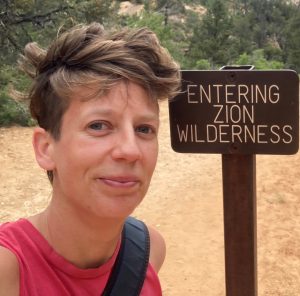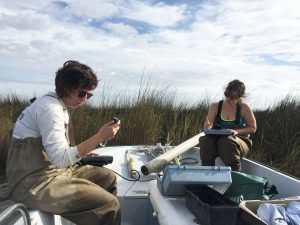 Human-natural systems and the climate resilience of coastal communities.
Human-natural systems and the climate resilience of coastal communities.
Giovanna McClenachan, Ph.D.
Assistant Professor, School of Marine and Atmospheric Sciences, Stony Brook University
Human-natural systems along the coast are at risk from climate change impacts of flooding (ocean, river, and precipitation driven) and extreme heat. These impacts are disproportionally felt by low-income neighborhoods and marginalized ethnicized and racialized (MER) communities, but these communities are rarely targeted for resilience solutions. Social infrastructure, like parks, community centers, and libraries, has been shown to increase the climate resilience by strengthening communal bonds and exchange of knowledge. Nature-based social infrastructure (NBSI), like parks, community gardens, and beaches, may provide added ecological benefits such as flooding and extreme heat mitigation. This talk will discuss drivers of coastal change and resilience and how NBSI could be part of the solution to increasing the social and ecological resilience of all communities that climate change will impact.
Gio McClenachan is a transdisciplinary coastal ecologist whose research focuses on investigating the drivers of ecosystem and societal coastal change and resilience. She studies these changes on multiple spatial and temporal scales, using GIS, remote sensing, and climate data to document broadscale shifts over time as well as field experiments to measure community-level response. Originally from Vermont, Gio received her PhD from Louisiana State University in Oceanography & Coastal Sciences and BS from Dickinson College in Environmental Science. She was a Preeminent Postdoc Fellow at University of Central Florida and an Assistant Professor at Nicholls State University in Louisiana. She’s currently an Assistant Professor in the School of Marine and Atmospheric Sciences at Stony Brook University, where she started in January 2024.
Website: www.cdel.org
Return to main page for Coastal Perspectives Lecture Series.
